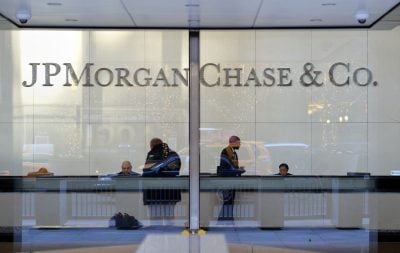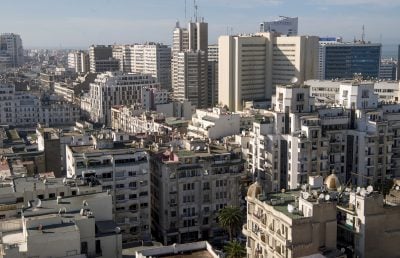The announcement of a plan by the Central Bank of Nigeria (CBN) to print new naira notes triggered a dramatic fall in the currency and a rapid rebound, prompting analysts to highlight a range of inflationary pressures in the economy.
Although rebounding by the morning of Friday 11 November to N740 against the dollar on the parallel market, the currency previously fell to nearly 892 naira to $1 on 6 November from the 752 naira that was offered at the widely used street market popularly known as the Bureau de Change (BDC) shortly before the announcement.
The CBN stated on 25 October that it will issue redesigned N200, N500, and N1,000 notes effective 15 December 2022. The CBN cited a “significant hoarding of the banknotes by members of the public, worsening shortage of clean and fit banknotes” and the “increasing ease and risk of counterfeiting” as the primary reasons for the new notes.
It said the notes targeted for replacement remain legal tender until 31 January 2023. That is less than a month before the general elections, when Nigerians will choose a new leader to replace President Muhammadu Buhari, who will finish his second and final term in May.
The CBN’s plan appeared to temporarily spook the parallel market, where a majority of Nigerians source foreign exchange due to low liquidity in the official window.
Mixed reaction
While the factors behind devaluation go well beyond the CBN move, the plan has nevertheless proved divisive. Speaking during a budget debate on 28 October, Nigeria’s finance minister, Zainab Ahmed, said that the ministry was not consulted.
“We were not consulted. It was an announcement that we heard. Part of the reasons that was advocated is that it is one of the ways to mop up the liquidity to manage inflation. But there are also consequences – we are looking at what the consequences will be. There will be some benefits but there will be some challenges. And I don’t know whether the monetary authorities have actually looked very closely at what the consequences will be and how they will mitigate it.”
By contrast, the Nigerian Presidency said in a tweet on 30 October that the CBN’s decision had President Buhari’s support and that he was “convinced that the nation will gain a lot by doing so”.
“People with illicit money buried under the soil will have a challenge with this but workers and businesses with legitimate incomes will face no difficulties at all,” said the President.
The private sector reaction has been less supportive.
Muda Yusuf, chief executive officer at the Centre for the Promotion of Private Enterprise, says that naira devaluation has prompted “a lot of damage from the point of view of inflation because there’s a very strong correlation between exchange rate depreciation and inflation.”
The ongoing forex crisis and attendant depreciation of the naira are taking a “toll on the economy,” says Uche Uwaleke, finance and capital markets professor at the Nasarawa State University, Keffi.
“The import component of rising inflation is widening, and many businesses that depend on imported raw materials are closing shop and laying off workers. So, unemployment is rising and, by extension, poverty level. Foreign investments are drying up due to exchange rate volatility. Already, some foreign airlines have suspended flights to Nigeria on account of the inability to repatriate funds from ticket sales.”
With Nigeria a “highly import-dependent nation,” production costs continue to spike with the fall of the naira on the parallel market, CPPE’s Yusuf says.
“Inflation is the biggest challenge we’re facing as far as foreign exchange depreciation is concerned, and when you have high inflation, it affects purchasing power. It contributes a lot to poverty, it affects the welfare of the people, and to some extent even creates some social discontent in the country.”
Inflation in Nigeria is currently at a 17-year-high at 20.7% and was driven by gas, fuel and transportation costs, according to September data from the National Bureau of Statistics (NBS), prompting the CBN to increase its Monetary Policy Rate (MPR) to 15.5% from a previous 14% in a move to tame inflation.
“The effect of inflation on many of the citizens is between 50-100%, depending on what they’re consuming the most. So the impact of inflation on poverty, welfare, and cost of living is phenomenal.”
Multiple causes of inflation
CBN governor Godwin Emefiele attributed inflation to “a decline in production levels, new orders, inventory levels, employment levels and persisting shocks from the global economy associated with both the Russia-Ukraine war and the unabating pandemic, as well as other domestic shocks,” during the announcement of the Monetary Policy Committee (MPC) decision to hike borrowing costs in September.
The announcement is one of several events triggering a flight to the dollar, says Joachim MacEbong, senior governance analyst at Stears Insights.
“Perhaps the bigger issue is another increase in rates by the US Federal Reserve, which has aggravated the pressure on the currency. Investors have flocked to the more attractive greenback. Nigeria also does not have the foreign exchange to satisfy demand at the moment, as evidenced by the difficulty in allowing airlines to repatriate their funds. So, in the end, the CBN has little credibility, and that is definitely hurting the naira.”
The Central Bank’s existing multiple exchange regime, a volatile crude oil market, and Nigeria’s inability to meet oil production target are some of the other cause of dollar shortages.
The multiple foreign exchange regime includes one rate pegged to the US dollar for government transactions and a much weaker rate, Nafex, that is determined by the market. Other rates are established for small and medium enterprises and travellers, but many turn to the parallel market for a truer guide to the currency’s value.
The government itself acknowledged the failures of the current exchange rate system in its Integrated National Financing Framework report, released at the beginning of October in collaboration with the UNDP.
“The multiple exchange rate systems and limited access to foreign exchange is a significant obstacle for businesses to operate. This exchange rate system and its inherent volatility deter investments in Nigeria.”
Professor Uwaleke fears that there will be no imminent solution to the problems given international and domestic headwinds.
“Regrettably, this downward trend in naira value is likely to linger in the near term, given low oil revenue due to oil theft and rising fuel subsidies as well as low capital importation partly on account of Russian Ukrainian war and the rising forex crisis and attendant depreciation of the naira is taking a lot of toll on the economy.”
Want to continue reading? Subscribe today.
You've read all your free articles for this month! Subscribe now to enjoy full access to our content.
Digital Monthly
£8.00 / month
Receive full unlimited access to our articles, opinions, podcasts and more.
Digital Yearly
£70.00 / year
Our best value offer - save £26 and gain access to all of our digital content for an entire year!
 Sign in with Google
Sign in with Google 



